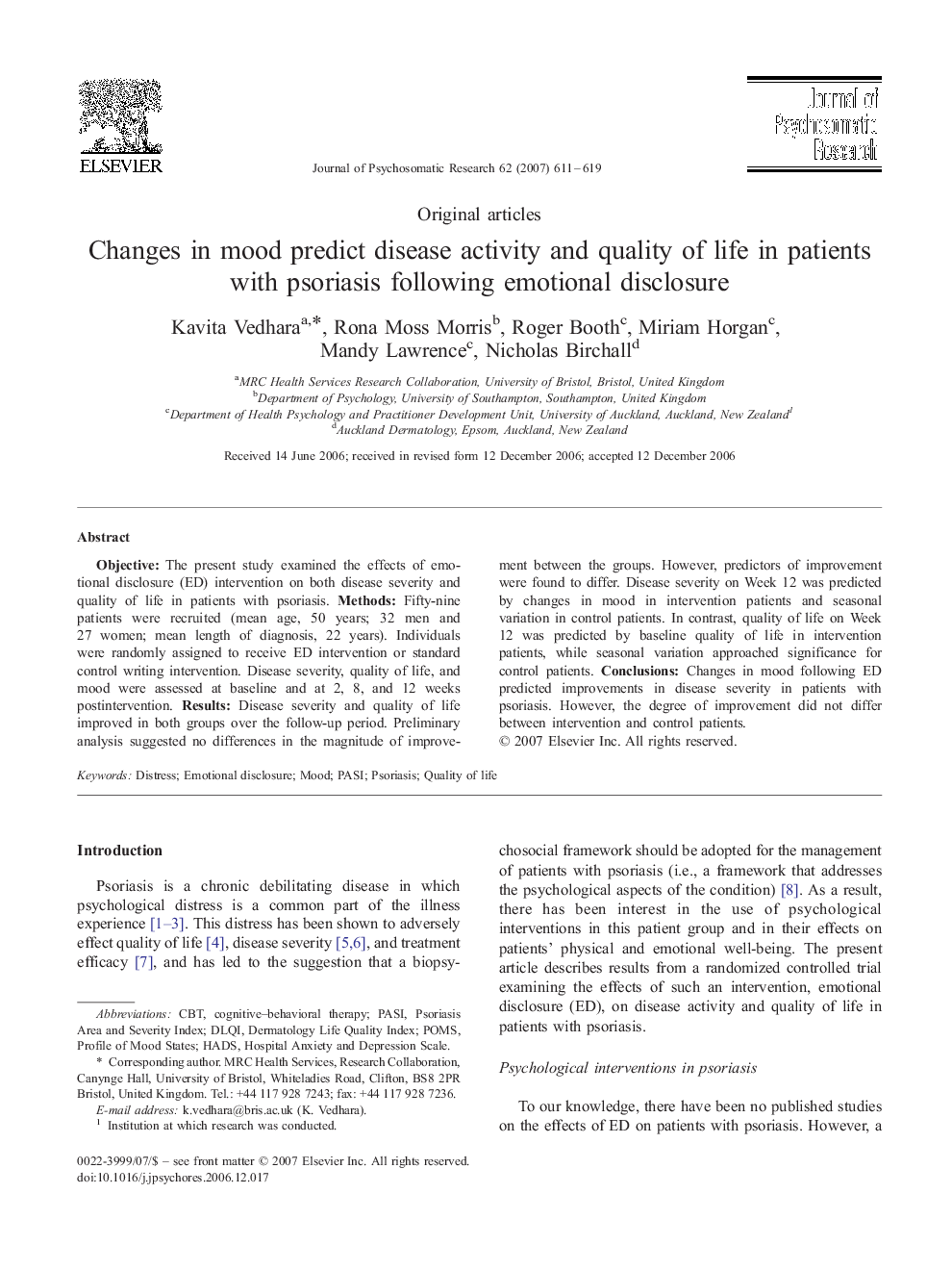| Article ID | Journal | Published Year | Pages | File Type |
|---|---|---|---|---|
| 950694 | Journal of Psychosomatic Research | 2007 | 9 Pages |
ObjectiveThe present study examined the effects of emotional disclosure (ED) intervention on both disease severity and quality of life in patients with psoriasis.MethodsFifty-nine patients were recruited (mean age, 50 years; 32 men and 27 women; mean length of diagnosis, 22 years). Individuals were randomly assigned to receive ED intervention or standard control writing intervention. Disease severity, quality of life, and mood were assessed at baseline and at 2, 8, and 12 weeks postintervention.ResultsDisease severity and quality of life improved in both groups over the follow-up period. Preliminary analysis suggested no differences in the magnitude of improvement between the groups. However, predictors of improvement were found to differ. Disease severity on Week 12 was predicted by changes in mood in intervention patients and seasonal variation in control patients. In contrast, quality of life on Week 12 was predicted by baseline quality of life in intervention patients, while seasonal variation approached significance for control patients.ConclusionsChanges in mood following ED predicted improvements in disease severity in patients with psoriasis. However, the degree of improvement did not differ between intervention and control patients.
